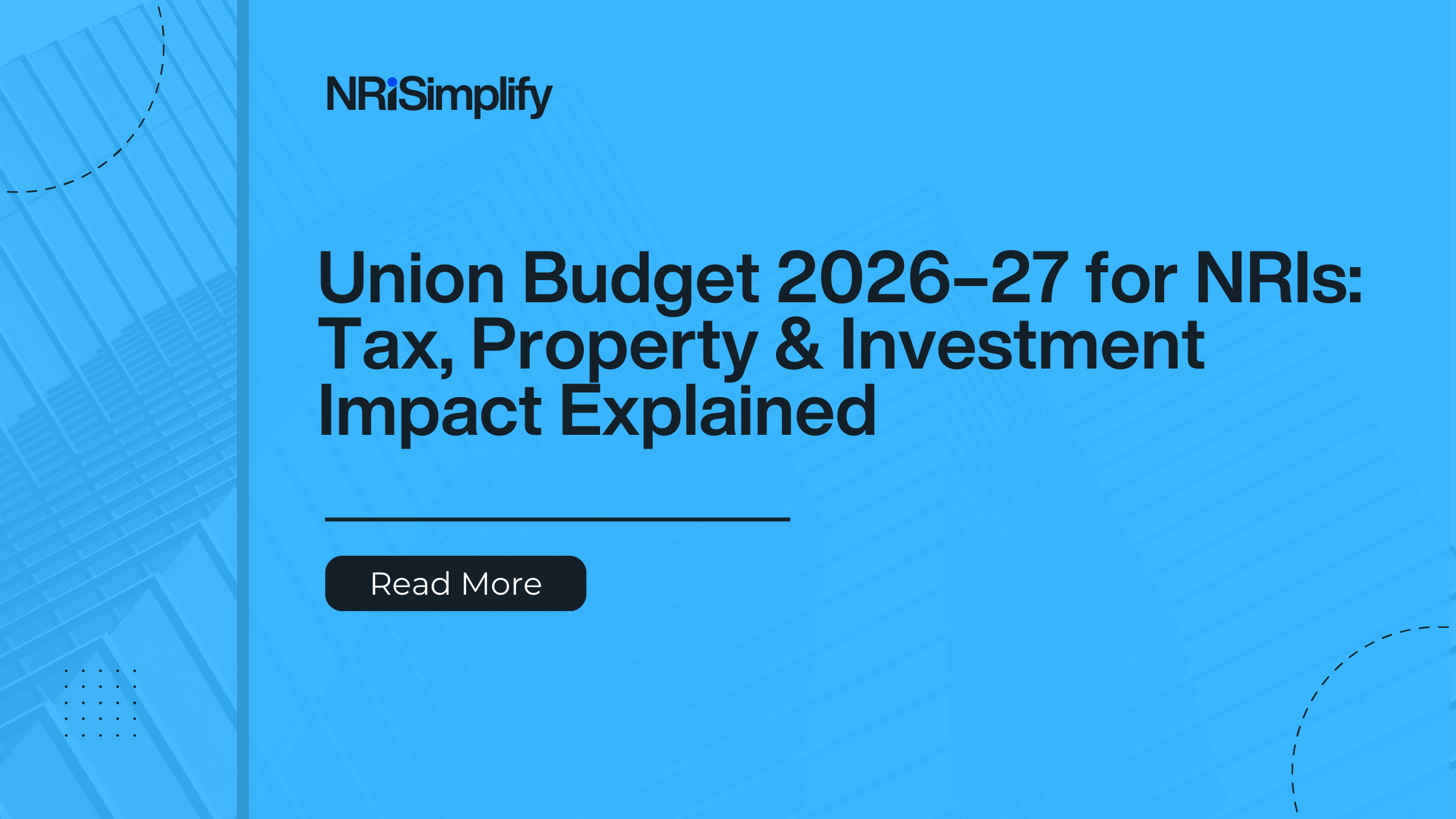Investing in real estate in India has long been an appealing option for Non-Resident Indians (NRIs). With the country’s strong economic growth, burgeoning infrastructure, and deep-rooted connections to their homeland, NRIs are increasingly interested in buying property in India. This comprehensive guide will walk you through the process of buying property in India, from understanding the legalities to navigating the tax implications and leveraging available investment opportunities.
Types of Properties NRIs Can Buy in India
Under the guidelines of the Foreign Exchange Management Act (FEMA), NRIs are permitted to invest in the following property types:
- Residential Properties: NRIs can purchase houses, apartments, villas, and bungalows in India, with no restrictions on the number of properties.
- Commercial Properties: Investment in office spaces, retail outlets, industrial units, and warehouses is also permitted.
- Agricultural Land: NRIs are generally prohibited from buying agricultural land, but they can inherit it or obtain special permission from the Reserve Bank of India (RBI).
Essential Documents for NRIs Buying Property
Having the right documentation is key to a smooth property transaction. Required documents include:
- PAN Card: Required for property registration and tax filing.
- Passport and Visa: Proof of NRI status.
- Aadhaar Card: For identification.
- Proof of Income: Salary slips, bank statements, or tax returns for securing financing.
- Tax Returns: To verify compliance with Indian tax laws.
Tax Implications for NRIs Buying Property
Understanding the tax implications of property transactions is crucial. Key areas NRIs need to be aware of include:
- TDS on Property Purchases: If the property value exceeds ₹50 lakh, 1% TDS is deducted by the buyer for a resident seller. For NRIs, the TDS is generally higher.
- Rental Income Taxation: Income from rented properties is taxable as “Income from House Property” under Indian tax laws and must be reported in both India and the country of residence.
- Capital Gains Tax:
- Short-Term Capital Gains (STCG): Properties sold within 24 months are taxed at 30%.
- Long-Term Capital Gains (LTCG): Properties sold after 24 months are taxed at 12.5% (post-July 2024 registration) or 20% with indexation (pre-July 2024).
For more details, check out our guide on Capital Gains Tax for NRIs Selling Property in India.
Step-by-Step Guide to Buying Property in India
- Eligibility: NRIs can buy residential and commercial properties but are restricted from purchasing agricultural land unless inherited or approved by RBI.
- Choose Property Type: Consider residential, commercial, or mixed-use properties based on your financial objectives.
- Secure a PAN Card: This is mandatory for all financial transactions related to property registration.
- Explore Financing Options: NRI-specific home loan options are available through NRE or NRO accounts.
- Research Locations: Choose areas with strong infrastructure and growth potential.
- Verify Ownership: Ensure that the property has clear titles and is free from legal disputes. Consult with a legal advisor if necessary.
- Obtain NOC: If purchasing property from another NRI, obtain a No Objection Certificate (NOC) from the Income Tax Department.
- Execute Sale Agreement: Finalize terms, payment schedules, and possession details.
- Register Property: Complete registration with the sub-registrar’s office to legalize the ownership.
- Obtain Occupancy Certificate: For new properties, this certificate ensures the building is suitable for occupation.
- Repatriate Funds: NRI property sale proceeds can be repatriated up to $1 million per year, subject to tax clearance.
FEMA Guidelines for NRIs
The Foreign Exchange Management Act (FEMA) regulates NRI property investments. Some key provisions are:
- Payments must be made in Indian Rupees through NRE, NRO, or FCNR accounts.
- No foreign currency transactions are allowed for property purchases.
- NRIs must adhere to RBI guidelines for acquiring property and repatriating funds.
Tips for NRIs to Maximize Returns
- Diversify Your Investments: Spread investments across multiple cities and property types for reduced risk.
- Hire Professionals: Work with experienced real estate agents, legal advisors, and tax consultants to ensure compliance and optimize your investment.
- Stay Updated on Market Trends: Regularly monitor the Indian real estate market, especially in terms of demand and new infrastructure developments.
- Leverage Tax Exemptions: Utilize provisions like Section 54 and Section 54EC for capital gains exemptions to reduce tax liabilities.
For more on tax strategies, refer to our Tax Strategies for NRIs Selling Property in India.
Conclusion
Investing in Indian real estate offers NRIs a host of benefits, from potential long-term appreciation to steady rental income. With proper planning, a clear understanding of the legal framework, and expert advice, NRIs can confidently navigate the complexities of property ownership in India.
With NRI Simplify, NRIs can seamlessly manage the entire property investment process, from selection to registration, ensuring a secure and legally compliant investment journey. Contact us today to explore the best investment opportunities and make informed decisions in the Indian real estate market.
Frequently Asked Questions (FAQs)
Q1: Can NRIs buy property in India?
Yes, NRIs can buy residential and commercial properties in India. However, they are restricted from purchasing agricultural land, farmhouses, or plantation properties unless inherited or approved by the RBI.
Q2: What are the documents required for NRIs to buy property in India?
NRIs need a PAN card, passport, Aadhaar card, proof of income, and tax returns for property transactions in India.
Q3: How can NRIs finance their property purchases in India?
NRIs can finance property purchases through NRE or NRO accounts or apply for NRI-specific home loans from Indian banks.
Q4: What are the tax implications for NRIs owning property in India?
NRIs are subject to taxes on rental income, capital gains tax on property sales, and TDS on property purchases. They can benefit from exemptions such as Section 54 and Section 54EC.
Q5: Can NRIs repatriate the sale proceeds of property in India?
Yes, NRIs can repatriate the sale proceeds up to USD 1 million per financial year, subject to RBI and tax compliance.
Q6: What is the process of registering property for NRIs?
NRIs must execute a sale agreement, complete registration at the sub-registrar’s office, and obtain an occupancy certificate for new properties.






